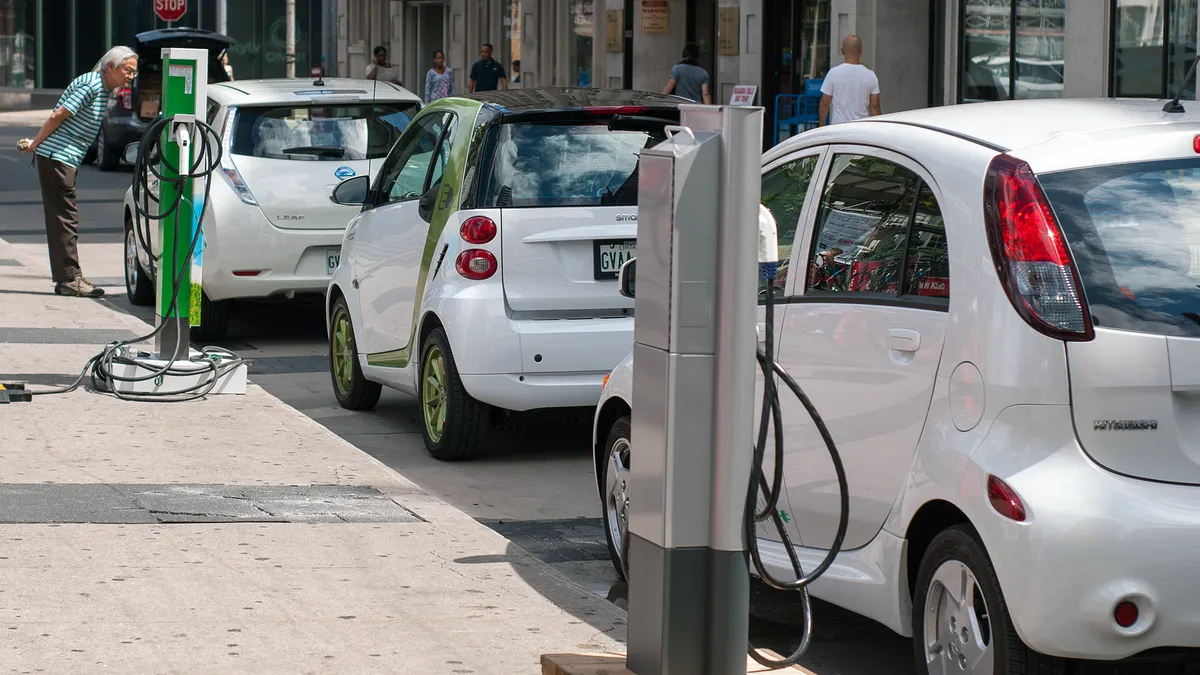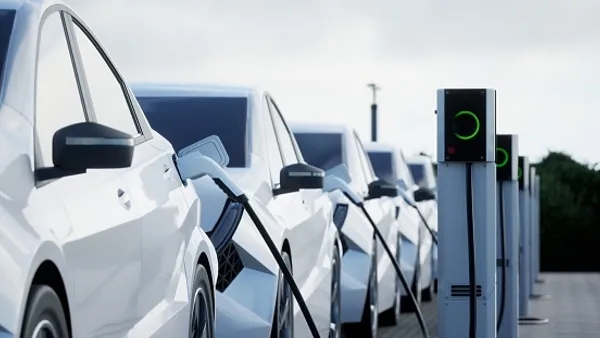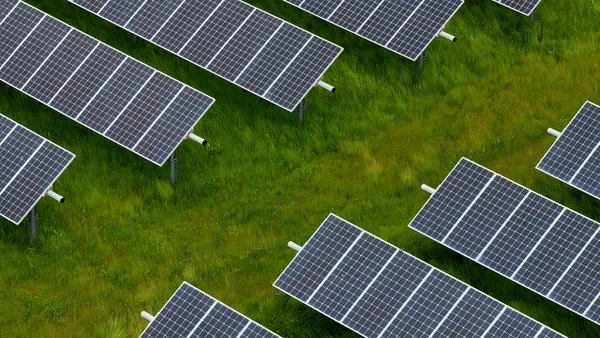Dive Brief:
-
States and cities across the country are fighting back against the Trump administration’s proposed rule for a singular vehicle emissions and fuel economy standard across the country.
-
Minnesota Gov. Tim Walz, D, on Wednesday and New Mexico Gov. Michelle Lujan-Grisham, D, on Tuesday announced their states would adopt clean car standards that exceed the proposed federal standards. And last Friday, attorneys general from 23 states and the District of Columbia, as well as Los Angeles and New York City filed a lawsuit against the administration's actions.
- The federal proposal, issued Sept. 19, would prohibit states from opting out of its fuel standard. State and city leaders, as well as local utilities worry this could impact electric vehicle rollout momentum.
Dive Insight:
Spurring the electric vehicle market has become a growing priority for state and local leaders looking to cut transportation emissions, and utilities have an increased interest in growing EV markets as they look to diversify their loads.
The Department of Transportation (DOT) and the Environmental Protection Agency (EPA) emphasized affordability in their rollout of the Safer, Affordable, Fuel-Efficient (SAFE) rules, which they say will save over $500 billion by 2029 in "societal costs" as well as create certainty for automobile manufacturers.
"One national standard provides much-needed regulatory certainty for the automotive industry and sets the stage for the Trump administration’s final SAFE rule that will save lives and promote economic growth," EPA Administrator Andrew Wheeler said in a statement.
But carmakers are not necessarily in line with the administration's thinking on regulatory certainty.
Ford, Honda, BMW and Volkswagen had a deal with California that would have allowed them to meet lower emissions standards while encouraging EV rollouts. And the federal proposal threatens to impede the progress of state Zero Emission Vehicle (ZEV) programs, say states, utilities and market experts.
New Mexico and Minnesota are now proposing to join 11 other states in setting their own vehicle emission standards. But the Trump administration's proposed rule would reject those standards and threaten states' ZEV rebate programs, which some say is the most impactful program for reducing transportation sector emissions.
"It's so hard to get to reduce vehicle miles traveled throughout the country. Most people are struggling with it. And so if you don't do low emission vehicles and you don't do ZEV there aren't a whole lot of other really effective programs," Sandra Ely, New Mexico environmental protection division director told Utility Dive. Lujan Grisham said New Mexico would adopt its standards by the end of 2020.
"It is environmentally and economically counterproductive to stall fuel economy standards as contemplated by the proposed federal rollbacks," she said in a statement. "While President Trump threatens to rob New Mexico and indeed all states of a valuable tool for combating air pollution and decreasing greenhouse gas emissions, New Mexico will stand up and deliver on our commitment to environmental leadership."
The governor in January also signed an executive order that directs state agencies to produce plans to reduce emissions across the power and transportation sectors.
Minnesota’s clean car standard is intended to drive EV investment and increase the number of zero or low-emissions vehicles on its roads, as well as evaluate regional EV charging corridor options, according to the state. The Minnesota Pollution Control Agency plans to begin its rulemaking process in October, and it's expected to last 15 months.
The following plaintiffs joined the suit against the DOT, EPA and the National Highway Traffic Safety Administration: California, Colorado, Connecticut, Delaware, Hawaii, Illinois, Maine, Maryland, Minnesota, Nevada, New Jersey, New Mexico, New York, North Carolina, Oregon, Rhode Island, Vermont, Washington, Wisconsin, Massachusetts, Pennsylvania, Virginia, Michigan, the District of Columbia, Los Angeles and New York City.















